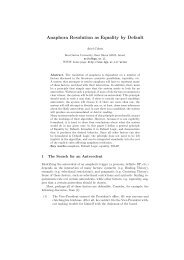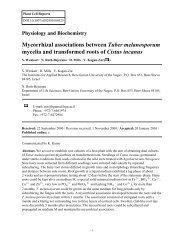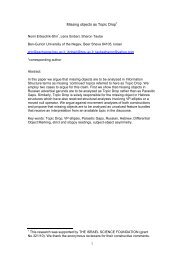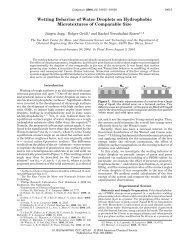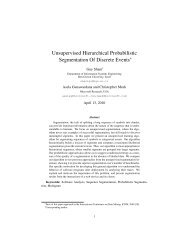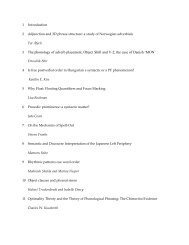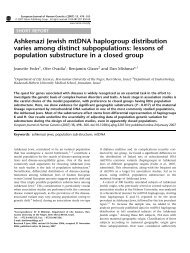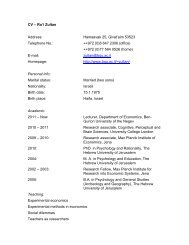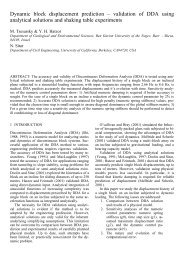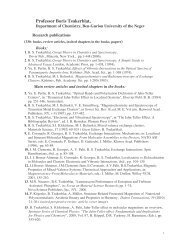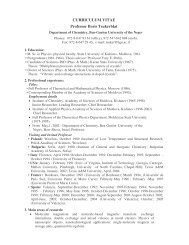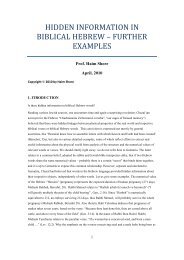Generics, Frequency Adverbs, and Probability
Generics, Frequency Adverbs, and Probability
Generics, Frequency Adverbs, and Probability
You also want an ePaper? Increase the reach of your titles
YUMPU automatically turns print PDFs into web optimized ePapers that Google loves.
proportion of black moths in these histories is roughly the same as it was in<br />
the late 19th century.<br />
It is the restriction of histories to admissible ones which accounts for the<br />
fact that generics <strong>and</strong> frequency statements are not parametric on possible<br />
worlds. There are any number of worlds where birds do not fly <strong>and</strong> where<br />
John does not jog in the park, <strong>and</strong> correspondingly there are any number of<br />
histories where birds lose the faculty of flight <strong>and</strong> John quits jogging. But<br />
such histories will not be admissible. In order for them to be admissible they<br />
would have to continue the actual history; but in the actual history birds do<br />
fly <strong>and</strong> John does jog, so these histories would fail to be homogeneous. Only<br />
histories in which things happen pretty much the way they occur in the actual<br />
world will be admissible, hence generics <strong>and</strong> frequency statements are not<br />
parametric on possible worlds. Since these histories are similar to the actual<br />
world, with its contingent properties, generics <strong>and</strong> frequency statements are<br />
contingent <strong>and</strong> not necessary.<br />
The notion of homogeneity also accounts for the observation, discussed in<br />
section 1.6 above, that generics <strong>and</strong> frequency statements require a regular<br />
distribution of events in time. In a state of affairs where the distribution<br />
of events is not regular, any history with respect to which the sentence is<br />
evaluated will not be homogeneous. Hence there will not be any admissible<br />
histories. Since, as we have noted, the proposed interpretation of probability<br />
presupposes the existence of admissible histories, the sentence would be ruled<br />
out as a case of presupposition failure.<br />
32



